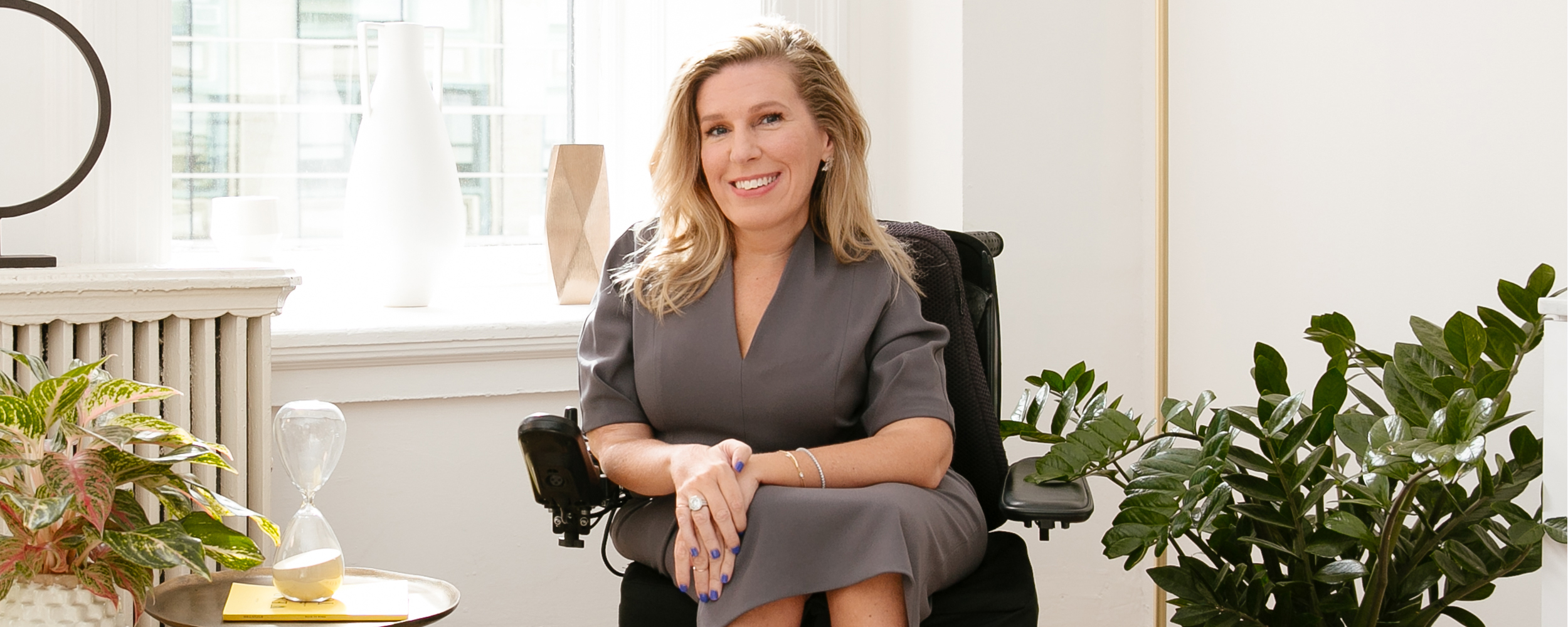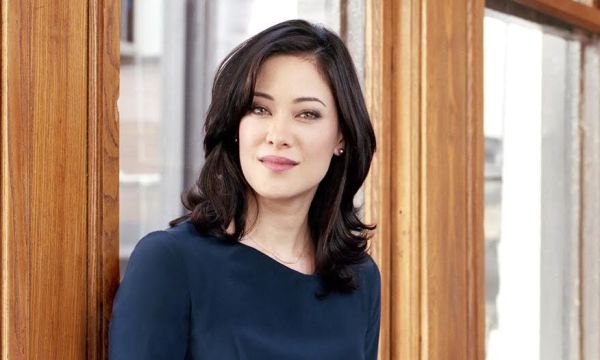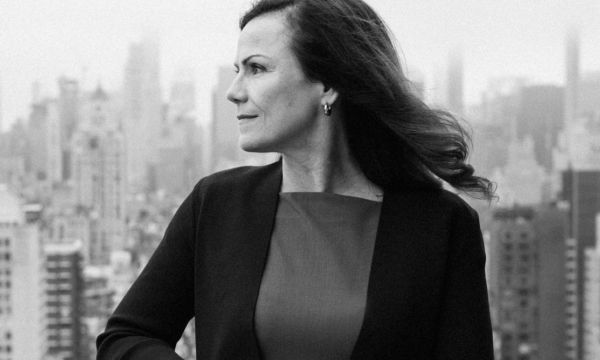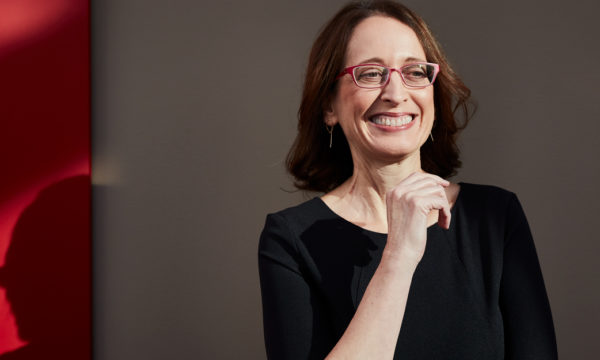Psychologist Danielle Sheypuk on Sexuality & Stigma
October 29, 2016 | Filed in: Woman of the Week
Psychologist Danielle Sheypuk isn’t afraid to talk about sex. In fact, she’s made a career out of it. As a clinical psychologist who specializes in issues of sexuality and dating within the disabled community, she’s on a mission to destigmatize the topic of sex with a disability. “Society—media included—seems to ignore the fact that we have the same needs and desires as everyone else,” says Danielle in her 2015 TED Talk. Having used a wheelchair for most of her life, she knows the challenges of dating with a disability, and if you want to swap crazy Tinder stories, she’s your woman. She recently visited our New York showroom to talk style, stereotypes, and how to avoid assholes when dating online.
I’M SUPER-FOCUSED ON CHANGING THE WAY the world views dating and disabilities, and on helping people with disabilities become more confident in their sexuality. We have the same sexual needs as everyone else, and we want to be part of the dating world. We make just as great partners as anyone else—or maybe better. We’re introspective; we’re not so superficial. I’m speaking generally, of course. But I often think that if someone waved a magic wand and I was able-bodied, I would be really suspicious of men. I would almost want to get a wheelchair and sit in it and be like, “Do you still like me? Do you still want to be with me?”
IN HIGH SCHOOL, I just wanted to fit in as much as possible, hide my disability as much as possible, and be as “normal” as possible. That’s really common in people with disabilities—it’s called ableism, and it’s denying or covering your disability to try to fit into an able-bodied world. As a teenager, I was interested in boys and wanted to date, but it never really happened for me. I was always going stag to homecoming or prom, or I’d go with my gay best friend. In college, I wanted to date even more. I had a couple guys who were interested, but it never really developed into anything significant.
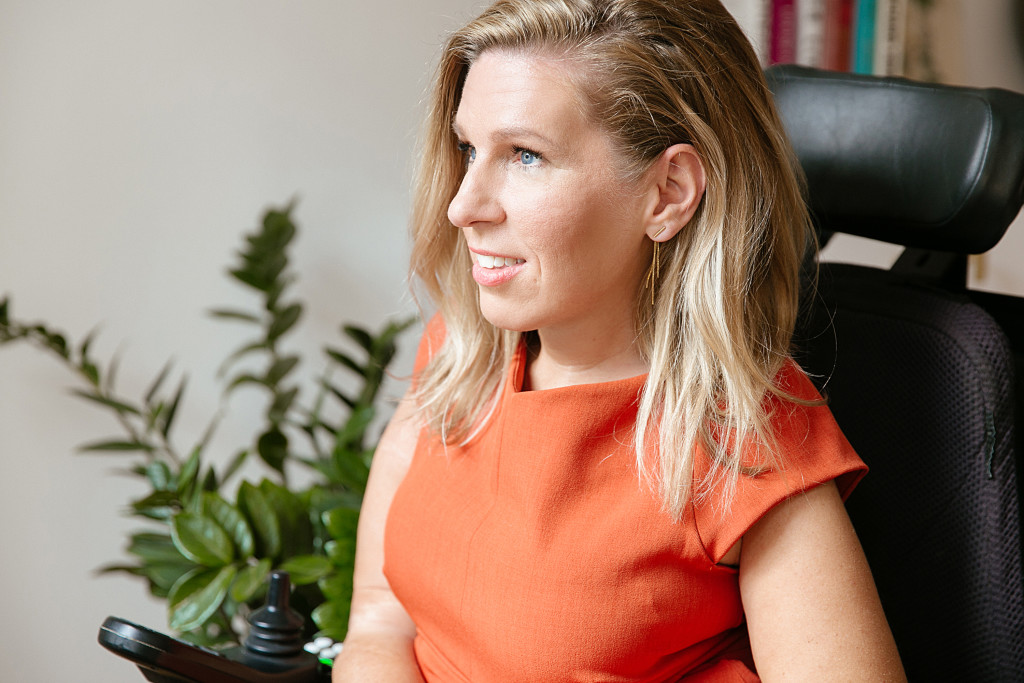
Danielle in the Nisa dress.
AFTER COLLEGE, I moved to New York to pursue my Ph.D. I was really into Sex and the City at that time. I felt like Carrie Bradshaw, but in a wheelchair. I thought, “It’s a big city. People will be more open-minded and it will be easier to date.” I joined Match.com and started dating. But it was still easier for my peers. I noticed this huge discrepancy, even though we were exactly the same in intellect, interests, and style. It’s hard because when you’re disabled, there’s no one to talk to about this, there’s no one to look up to, there’s no role model, there’s no one on TV. We’re a big part of the population, but we’re still left out of the conversation around dating.
WHEN IT COMES TO DATING, I often tell my disabled clients: Having a disability helps you filter out the assholes. On Tinder, guys will point-blank ask me, “Can you have sex?” I like to respond, “Yeah, can you?” And they get really pissed off. And I’m like, “But you just asked me the same question. I don’t know if you can get an erection. I don’t know if you have problems performing in bed. Why do you assume I have problems?” Guys would never ask these questions of an able-bodied woman, and she might end up wasting her time having a drink—or having sex—with some asshole. When you’re dating online, having a disability actually helps you avoid a lot of idiots.
A FEW YEARS AGO, my friend told me about the Ms. Wheelchair New York competition, which emphasizes both academic achievement and glamour. It was the first time I’d heard glamour being associated with disability, and I thought, “Let me win this and use it to open the door.” So in 2012, I entered and I won. Around that time, I was visiting a doctor and I told him I was working on my Ph.D. in clinical psych. He was like, “That’s really great.” And then I told him I was Ms. Wheelchair New York, and he said, “Oh my god! You are?!” He was more excited about that than my Ph.D.
I’VE ALWAYS BEEN INTO FASHION and putting things together, but in high school, I used to feel down about it. I was so into clothes and shopping and looking great, but I thought, “What’s the point? Why should I? I’m not dating, I’m not one of the popular ones.” So it wasn’t jiving. But when I moved to New York, things changed. I found my style. I like things that are glamorous, eye-catching, and a little sexy. I learned how to dress my body to accentuate the parts that I like—my shoulders, my boobs, my legs—and play down the parts that I don’t, just as anyone does.
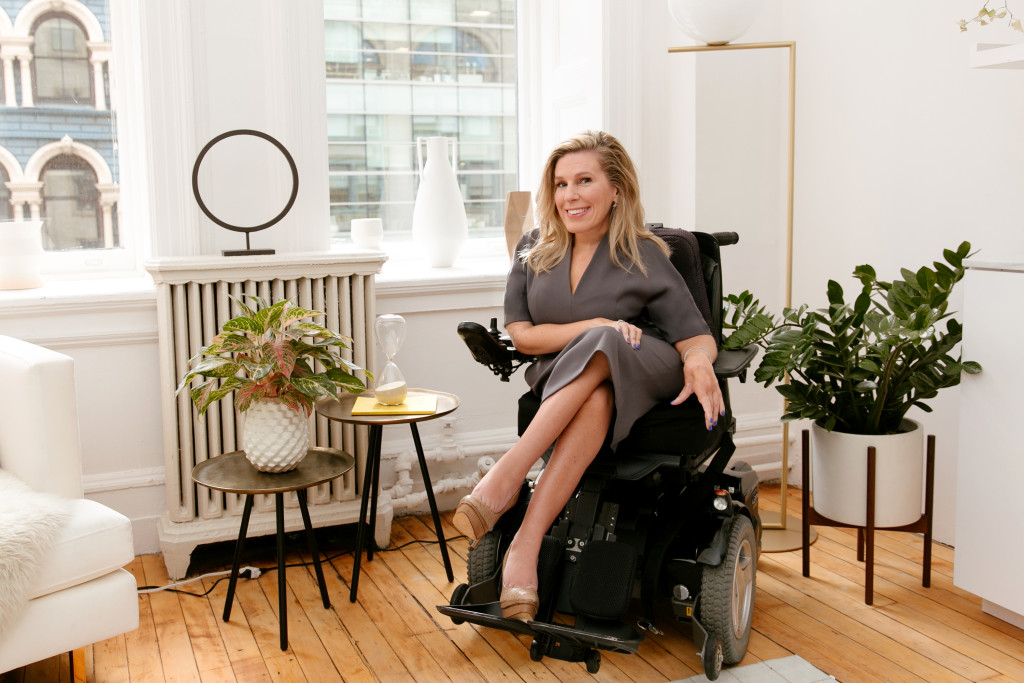
Danielle in the Ingrid dress.
THE FASHION INDUSTRY is definitely not inclusive. Brands don’t market to people with disabilities, but we’re valuable consumers with a lot of money to spend. I don’t think there need to be special clothes for people with disabilities; you just need to find the right pieces for your body. That’s why I’m so excited about MM.LaFleur—you look at every woman individually and fit her body. Finding the right fit is so important for creating a feeling of confidence.
I HAVE A TEENAGE CLIENT who tells me, “I want to be like you.” So I advise her to walk through every open door, to take every opportunity to talk about her experience and her cause. For me, being vocal and open has brought so many opportunities to change the way people look at disabilities. Now, I’m really comfortable being a spokesperson and being out there in front of the camera. I’m comfortable in the skin that I’m in, but it’s not just about me and my superficial look. Whenever I do an interview or press, I feel like I’m taking everyone with disabilities with me, and I want to represent them to the best of my ability.
YOU KNOW WHAT’S UNDERRATED? Using a power wheelchair in New York City, especially when you want to get somewhere really fast. You can use the bike lane! People think using a wheelchair sucks, but it’s actually great. You can get places fast. And for free.
Photos by Lindsay Brown





